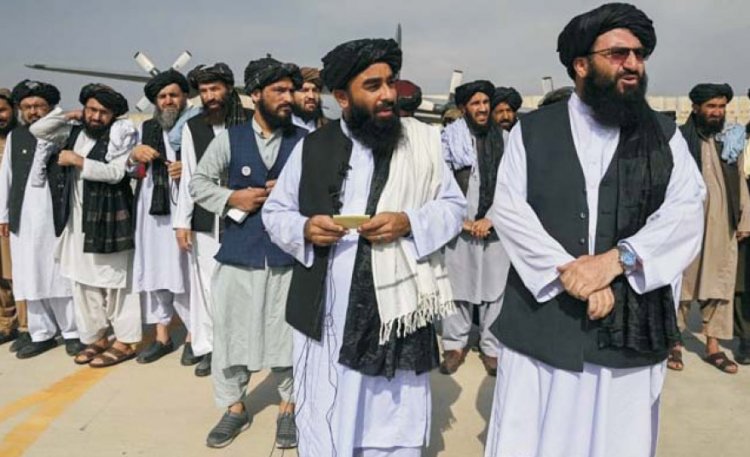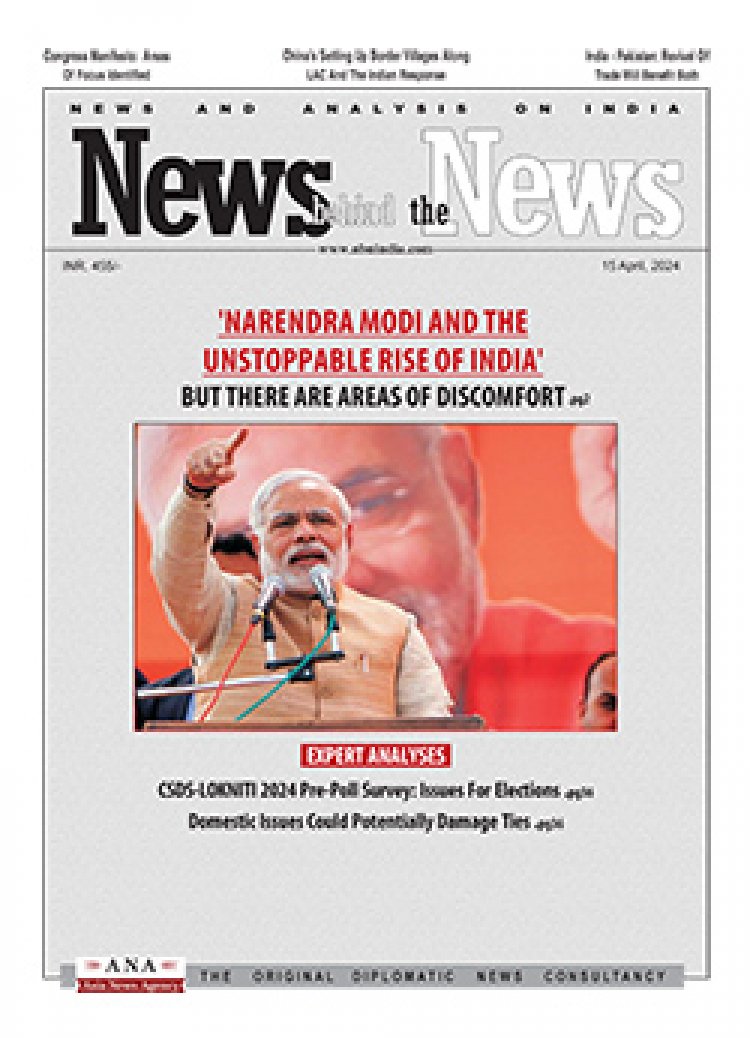Afghanistan: India Getting Its Act Together
STORIES, ANALYSES, EXPERT VIEWS

According to India’s assessment, the political situation in Afghanistan has taken a turn for the worse with Hassan Akhund as acting prime minister, Sirajuddin Haqqani in charge of interior ministry and intelligence, and Mullah Yaqoob, son of Mullah Omar, the defence minister. It is understood that 20 of the 33 member caretaker government, including Akhund, Haqqani and Yaqoob, are UN designated terrorists. Of concern to India is that the government has four members from the Haqqani network, which has close ties with Pakistan and has targeted both the US and India in the past.
Despite sugar coating its agenda for the present, analysts say the Taliban is really a medieval force based on 1000 year old Islamic theocracy and has an agenda of global jihad with massive stockpile of US arms at its disposal. As the group has refused to severe ties with Al Qaeda and other jihadi group present in Pakistan, there is clear and present danger of increased Islamic radicalization in the region.
India expresses concern to visiting UK MI-6 chief Richard Moore and to CIA Chief William Burns: In the circumstance, India has expressed concerns over threat from Islamist Taliban ruled Afghanistan to visiting UK MI-6 chief Richard Moore and to CIA Chief William Burns last week. During discussions with Moore, India is reported to have put across its point of view on the impact of Taliban-ruled Afghanistan while trying to understand their point of view. The broad assessment is that the Taliban 2.0 is no different from its previous avatar.
Meeting of India, Russia National Security Advisors: Separately, National Security Adviser Ajit Doval also met with the secretary of the Security Council of the Russian Federation, Gen. Nikolay Patrushev. During the meeting, the two sides discussed the prospects of a Russian-Indian joint effort at creating conditions for the launch of a peaceful settlement process on the basis of an intra-Afghan dialogue.
India and Russia are learnt to have expressed deep concern over the developments in Afghanistan, the need for the Taliban to adhere to promises, the spectre of radicalism and terrorism, the presence of terror groups in Afghanistan and the threat posed to India and Central Asia.
The two are understood to have also discussed the flow of weapons to terrorist groups and smuggling across Afghan borders, and the chances of Afghanistan becoming a hub of opium production and trafficking. The Russian dignitary also later called on Prime Minister Narendra Modi and met external affairs minister S. Jaishankar, with the Afghan situation figuring in both those separate discussions.
NSA Doval is learnt to have emphasised Pakistan’s links with the Taliban and other international terrorist groups operating in Afghanistan, and also the special responsibility Pakistan has to ensure that Afghan soil is not used to spread terrorism. The Indian NSA is also learnt to have highlighted the links of Pakistan’s ISI with Pakistan-based terror groups operating in Afghanistan like Lashkar-e-Tayyaba and Jaish-e-Mohammed. The two are also understood to have discussed concrete forms of future bilateral cooperation among security agencies, including close coordination, upgrading consultations and information exchanges.
Despite the fact that Moscow of late has seemed soft on the Taliban, Russia’s concerns seem to be growing after the recent developments in Afghanistan, including the attack on the Panjshir valley by the Taliban which have angered both Iran and Russian ally Tajikistan.
Ironically, time-tested friends India and Russia had a stark difference of views on Afghanistan before the Taliban takeover. India had strongly supported the Western-backed erstwhile government of then President Ashraf Ghani while Russia had pitched for a strong role for the Taliban and made no secret of its dislike for the erstwhile Afghan government which collapsed last month following the fall of Kabul on August 15 to the Taliban.
Russia, meanwhile, put out a statement saying Doval and Gen. Patrushev had an exchange of views on the military, political and socio-economic situation in Afghanistan wherein the “importance of defining parameters of the future state structure of Afghanistan by the Afghans themselves, as well as the need to prevent the escalation of violence, social, ethnic and confessional contradictions in the country, were emphasised”. Moscow also said both discussed deepening bilateral cooperation in the field of security with an emphasis “on further interaction on the anti-terrorist track, combating illegal migration and drug trafficking”, adding that “in addition, both sides agreed to coordinate the approaches of Russia and India in multilateral formats on the Afghan settlement”. It also said “attention was paid to intensifying the joint work of both countries’ special services and military bodies”.
Earlier, Prime Minister Modi met General Nikolay Patrushev, right hand man of Russian President Vladimir Putin and secretary of Russian Security Council, to understand Moscow’s position on Kabul. As a follow-up of PM Modi’s warm conversation with President Putin over telephone on August 24, Gen Patrushev came to India last night at the invitation of National Security Advisor (NSA) Ajit Doval. Patrushev also met External Affairs Minister S Jaishankar.
PM Modi on a three-day visit to the US this month: As part of its diplomatic outreach, Prime Minister Narendra Modi goes on a three-day visit to the US this month. The visit will begin with a bilateral with US President Joe Biden in Washington on September 23 followed by a physical summit meeting of QUAD partners the next day. PM Modi is expected to address UN General Assembly on September 25 before flying back to India.
On top of his agenda will be stabilisation of Afghanistan and counterterrorism (along with Indo-Pacific and climate change). Also the role of regional players like China, Russia, and Iran are likely to figure as will be Pakistan openly playing cards in the formation of the government in Kabul. Lt General Faiz Hameed, DG, ISI’s presence in Kabul was to ensure that a pro-Pakistan government is formed and ensuring that resistance in Panjshir is eliminated. It is a matter of concern, say some analysts, that despite Pakistani ISI running the show in Kabul, a tired international community is silently watching the events.
















